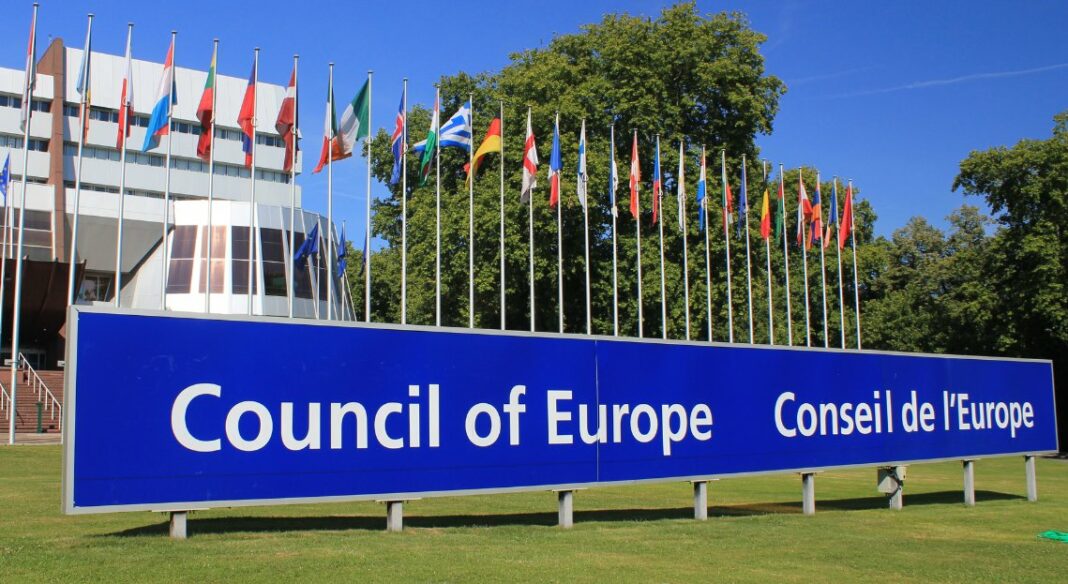The Council of Europe’s (CoE) Committee of Ministers, in its quarterly meeting to take place December 5-7, will address Turkey’s compliance with European Court of Human Rights’ (ECtHR) rulings in the cases of jailed Kurdish leader Selahattin Demirtaş and Osman Kavala, a prominent Turkish philanthropist and businessman who has been in jail since 2017.
The committee launched an infringement proceeding against Turkey over its treatment of Kavala last year. This could potentially see Ankara expelled from the continent’s leading human rights organization.
In its quarterly meeting held in Strasbourg September 14-16, the committee set September 30 as a deadline for Turkey to present an action plan regarding the case of Demirtaş, while it decided to wait for the release of jailed Kavala until this session.
According to a report by the BBC’s Turkish service (BBC Türkçe), Turkey’s permanent representative to the CoE submitted two letters to the committee ahead of its meeting, asserting “the impartiality and independence” of Turkey’s judiciary.
Turkey’s judiciary is criticized by international bodies and rights groups for taking orders from the executive branch. Ankara disbarred more than 4,000 judges and prosecutors immediately after an abortive military coup in July 2016 over alleged ties to the faith-based Gülen movement, which it accused of orchestrating the attempted putsch. The movement denies any involvement.
The mass disbarment of members of the judiciary is believed by many to have had a chilling effect on the entire justice system, intimidating the remaining judges and prosecutors into doing the government’s bidding by launching politically motivated investigations into critics.
The letters by Turkey’s representative also detailed Kavala’s conviction under the Turkish Penal Code’s Article 312 for “attempting to overthrow the government” and the finality of his sentence.
The representative also highlighted two pending violation applications by Kavala to the Constitutional Court.
In a separate letter, the representative conveyed Ankara’s stance on the Demirtaş case, noting the pending Constitutional Court decision and urging the committee to await its resolution.
Kavala’s lawyers, in a December 1 letter to the committee, assessed recent developments and urged immediate steps, including activating the “complementary joint procedure,” for Turkey to comply with the Kavala ruling.
This procedure involves the general secretary of the CoE, PACE and the Committee of Ministers jointly determining steps for non-compliant member states.
Turkey, having delayed the infringement procedure’s decision-making until after its May 2023 elections, increased dialogue with the Council of Europe, though without resolution.
Turkish Foreign Minister Hakan Fidan, in a parliamentary budget meeting on November 20, argued that the issue stemmed from a few “politicized” cases and said that he conveyed this view to the CoE general secretary during her November 13 visit.
Kavala’s lawyers criticized Fidan’s remarks as confirming the political nature of the case and the violation of Article 18 of the European Convention on Human Rights.
The lawyers emphasized that demands from the CoE for Turkey to fulfill its obligations under the European Convention on Human Rights do not politicize the case.
They stated that these demands arise from legal obligations as a member state of the CoE and under Turkey’s constitution.
The outcome of the committee’s meeting, whether a decision will be made, remains uncertain.
The final decision on sanctions will depend on evaluations by the general secretary of the Council of Europe, PACE and the Committee of Ministers.
Previously, PACE had called for sanctions against Turkey if Kavala remained detained beyond January 1, 2024, targeting state officials involved in their detention and potentially not renewing the credentials of the Turkish parliamentary delegation.
The infringement procedure, stemming from Article 46 of the European Convention on Human Rights, was previously initiated for Azerbaijan but was suspended following the release of the concerned individual.
The decision to impose sanctions, especially against founding member Turkey, involves careful consideration of the CoE’s founding philosophy and principles and the potential political implications of Turkey’s membership status.
The ECtHR’s 2019 ruling stated that Kavala’s detention aimed to silence him and intimidate other human rights defenders, urging the Turkish government to take the necessary steps for his immediate release.
Kavala, 66, faced charges that have ranged from espionage and financing protests in 2013 to taking part in a failed coup against President Recep Tayyip Erdoğan in 2016.
He was arrested in October 2017 and sentenced to life in 2022 for allegedly trying to topple Erdoğan’s government.
Turkey’s refusal to abide by ECtHR rulings to immediately release Kavala have damaged Ankara’s relations with Western allies.
Critics say Kavala’s case highlights the deterioration of Turkey’s rights record in the second decade of Erdoğan’s rule.
Turkey was ranked 117th out of 142 countries in the rule of law index by the World Justice Project in October 2023.

